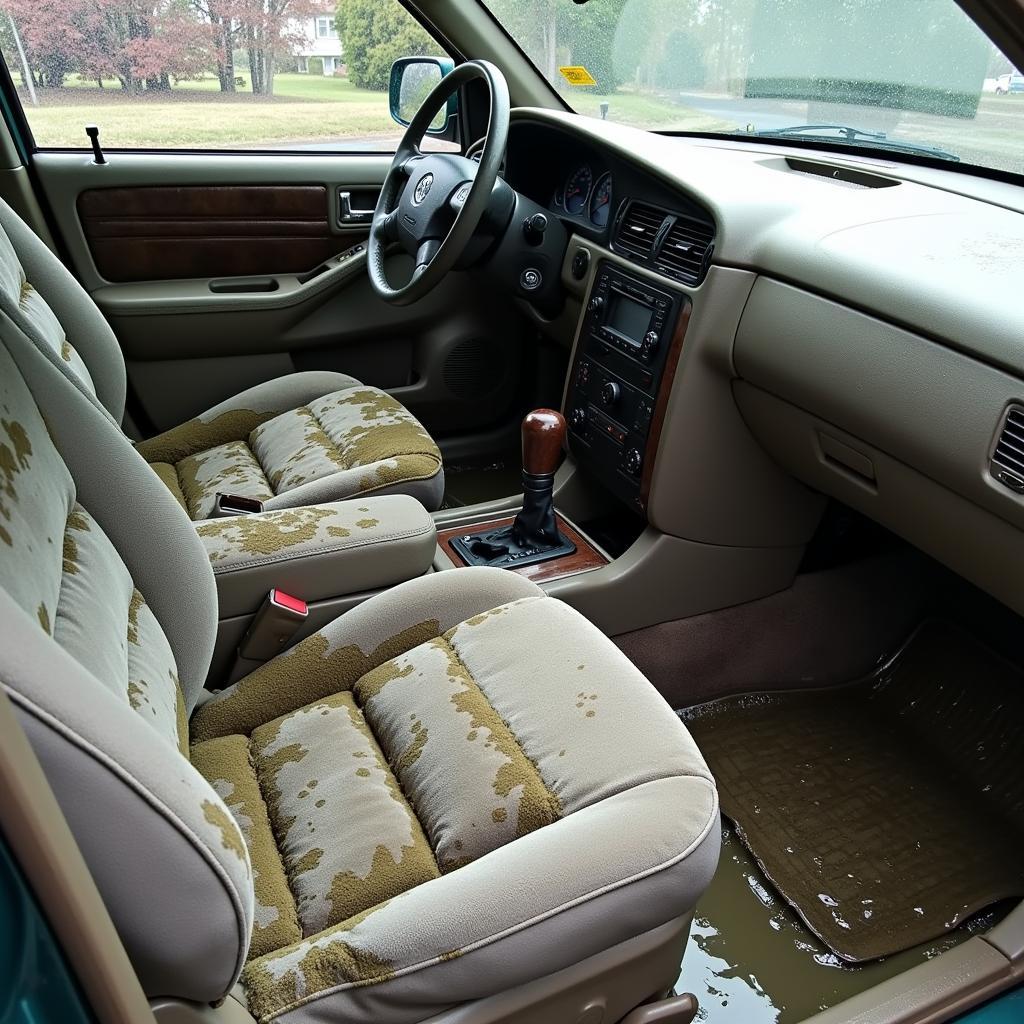The Hyundai Theta II engine, once notorious for its issues, has undergone significant improvements in newer Hyundai models. This article addresses those past concerns, clarifies the solutions implemented by Hyundai, and provides valuable insights for owners of both older and newer Hyundai vehicles equipped with the Theta engine. Understanding these advancements can help you make informed decisions about maintenance and potential future purchases.
Addressing the Past: The Theta II Engine’s Troubles
The Theta II engine, found in popular Hyundai models like the Sonata and Santa Fe, suffered from a significant design flaw that led to premature engine failure. This issue stemmed from inadequate oil flow to the engine’s connecting rod bearings, resulting in excessive wear and tear, and ultimately, engine seizure. This problem led to widespread recalls, lawsuits, and a considerable dent in Hyundai’s reputation.
Understanding the Root Cause: Oil Flow Restriction
The restricted oil flow within the Theta II engine was primarily attributed to manufacturing debris left within the engine block during the manufacturing process. This debris blocked crucial oil passages, starving the connecting rod bearings of necessary lubrication. The resulting friction and heat led to bearing failure and catastrophic engine damage.
Hyundai’s Response and Solutions in New Cars
Hyundai has taken significant steps to rectify the issues plaguing the Theta II engine. These solutions aim to improve oil flow, enhance engine durability, and restore consumer confidence.
Improved Manufacturing Processes
Hyundai has implemented more stringent quality control measures and improved cleaning processes during engine assembly. These changes aim to eliminate the manufacturing debris that was the primary cause of oil flow restriction in the original Theta II engines.
Enhanced Engine Design
Beyond addressing manufacturing flaws, Hyundai has also incorporated design changes to enhance oil flow and improve engine cooling. These modifications include redesigned oil passages, optimized oil pump performance, and improved engine block cooling.
Extended Warranties
To demonstrate their commitment to addressing the Theta II engine issues, Hyundai offered extended warranties on affected vehicles. This provided car owners with additional peace of mind and demonstrated Hyundai’s willingness to stand behind their product.
What This Means for Hyundai Owners
The improvements implemented by Hyundai significantly reduce the risk of engine failure in newer Hyundai vehicles equipped with the Theta II engine. However, owners of older models should remain vigilant and maintain proper maintenance schedules, including regular oil changes with the recommended oil viscosity.
Regular Maintenance is Still Key
Even with the improvements, regular maintenance is essential for the longevity of any engine, including the updated Theta II. Regular oil changes, using the correct oil type and filter, are crucial for preventing sludge buildup and maintaining proper lubrication.
“Regular maintenance is like brushing your teeth for your car. It might seem tedious, but it’s crucial for long-term health,” says John Miller, a seasoned automotive engineer with over 20 years of experience in engine diagnostics and repair.
Conclusion
Hyundai Theta engine problems have been largely solved in new cars thanks to significant improvements in manufacturing processes and engine design. While the past issues were undoubtedly concerning, Hyundai’s proactive response and commitment to rectifying the problems have resulted in a more reliable and durable Theta II engine. While vigilance and regular maintenance are always recommended, prospective buyers and current owners of newer Hyundai vehicles can be confident in the advancements made to address the previous engine issues. For any further assistance or inquiries, don’t hesitate to connect with us at AutoTipPro. Call us at +1 (641) 206-8880 or visit our office at 500 N St Mary’s St, San Antonio, TX 78205, United States.
FAQ
- Are all new Hyundai engines problem-free? While the Theta II engine issues have been largely addressed, no engine is entirely immune to potential problems. Regular maintenance is key for longevity.
- Should I buy a used Hyundai with a Theta II engine? If the vehicle is covered under the extended warranty and has a documented service history, a used Hyundai with a Theta II engine can be a viable option.
- What are the signs of Theta II engine problems? Knocking noises, decreased performance, and the check engine light are potential indicators of engine problems.
- How often should I change the oil in my Hyundai with a Theta II engine? Follow the manufacturer’s recommended oil change intervals, typically every 3,000-5,000 miles.
- What type of oil should I use in my Hyundai with a Theta II engine? Use the oil viscosity recommended in your owner’s manual.
- Can I perform maintenance on my Theta II engine myself? While some basic maintenance tasks can be done at home, more complex repairs should be left to qualified technicians.
- Are there any ongoing recalls for the Hyundai Theta II engine? Check the National Highway Traffic Safety Administration (NHTSA) website for the latest recall information.





Leave a Reply